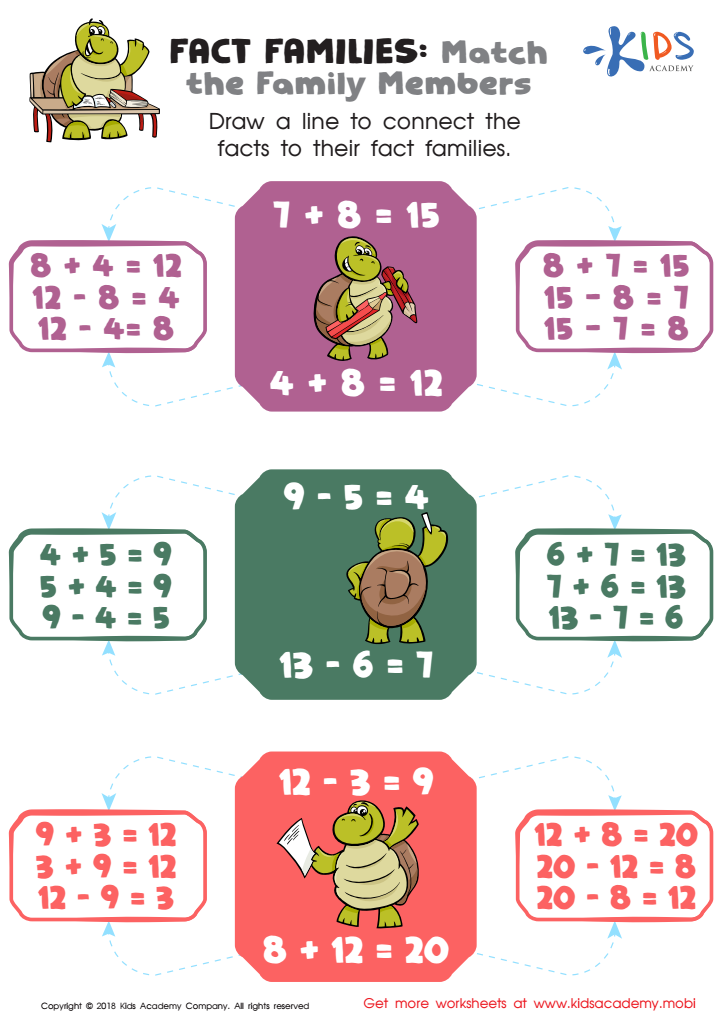Improve problem-solving skills Addition Worksheets for Ages 3-8
5 filtered results
-
From - To
Unlock your child's potential with our "Improve Problem-Solving Skills Addition Worksheets" designed specifically for ages 3-8. These engaging printable worksheets provide a fun, interactive way for young learners to grasp the fundamentals of addition while enhancing their critical thinking abilities. Each worksheet focuses on real-world scenarios and visual aids to make math relatable and exciting. As children tackle various addition problems, they develop essential problem-solving skills that pave the way for future academic success. Perfect for home or classroom use, these worksheets cater to different learning styles, ensuring every child finds joy and confidence in mastering addition!


Fact Families: Match Family Members Worksheet
Enhancing problem-solving skills through addition for children ages 3-8 is crucial for their cognitive and social development. At an early age, children begin to understand numeracy, patterns, and relationships, laying the groundwork for critical thinking. Addition not only introduces them to the concept of numbers but also fosters logical reasoning as they discover how to combine quantities.
Parents and teachers should care about improving these skills because the foundational understanding of addition can correlate with greater success in later, more complex mathematical concepts and real-world problem-solving situations. Engaging children in fun and interactive activities that promote addition—such as games or hands-on manipulatives—encourages them to think creatively, learned valuable teamwork skills, and boosts their confidence in managing everyday challenges.
Moreover, problem-solving skills go beyond mathematics. As children learn to approach problems methodically, draw conclusions, and arrive at solutions, they cultivate resilience and perseverance. Supporting these skills prepares children to become critical thinkers and effective decision-makers, benefiting them academically and in life. By prioritizing the development of problem-solving through addition, parents and teachers are equipping children with essential tools for success in an increasingly complex world.


 Assign to My Students
Assign to My Students


















